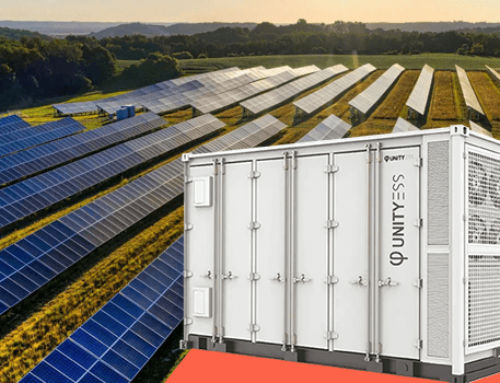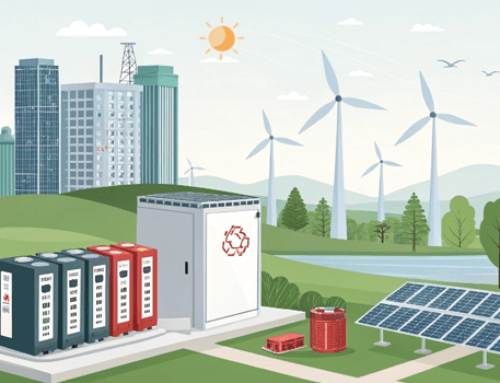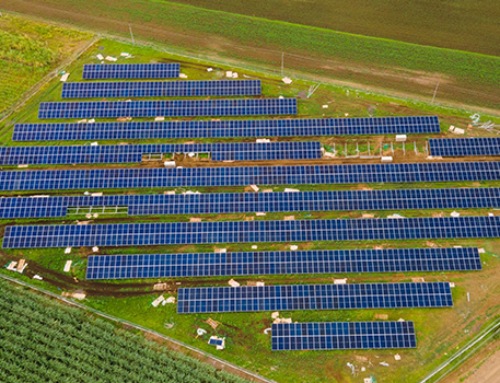
Solar energy is not a new source of energy but it has yet to be fully utilized. However, in recent years, the number of individuals and groups that have installed solar panels for their homes and businesses has increased exponentially. Despite increased awareness about solar energy and improved information all around, there are still a lot of misconceptions regarding solar energy and solar panels. We’ll try to dispel some of those rumors and put you on the correct track in this part.
Here is a fact check on some of the common myths about solar energy that is preventing its wider acceptance.
Myth 1: Solar panels don’t work in cloudy or snowy weather.
The first common misconception regarding solar panels is that they are ineffective under cloudy conditions.
Solar panels generate electricity from sunlight, not heat. Even on cloudy or snowy days, they continue to produce power—just at reduced efficiency. As long as daylight is present, panels can generate electricity. While sunny days maximize output, solar panels are still effective in less-than-perfect weather conditions.
Myth 2: Solar panels will keep powering your home during a power outage.
Of course, if you live on grid connectivity, the power goes out when the grid system goes down.
As a result, your inverter detects that the grid has been turned off and turns down the solar-powered electricity generation.
Myth 3: Solar energy is too expensive.
The cost of solar panels has dropped by over 80% in the last decade. In many regions, solar power is now cheaper than coal or gas. With solar subsidies, net metering, and low maintenance costs, solar is one of the most economical sources of energy today.
Myth 4: Installing and maintaining solar panels is complicated.
Solar panel installation is pretty simple. Solar panels are easier to maintain if they are connected to the utility grid.
In the maintenance, all it needs is the cleaning of solar panels. It would just be necessary to clean the solar panels using water to remove any accumulated dust, dirt, or snow. Solar panels are built to endure inclement weather such as hail, sleet, and other forms of precipitation.
A battery-powered system will require more cleaning than one that does not, although battery-free systems are more widespread and less expensive.
Myth 5: Solar panels will damage my roof.
Solar panels help to protect and preserve the area of the roof that they are installed on. Because the panels are not physically linked to the roof but rather positioned on top of it, they may be easily removed if the roof on which they are installed is damaged and needs to be repaired. When there are gaps between the roofs and the panels, the sealant is usually applied to fill them. Furthermore, the mounts are shielded by a metal “flashing” or covers that provide an additional layer of protection. Always double-check your roof for damage before installing a new rooftop.
Myth 6: Excess energy can be stored in battery systems.
If you live on the grid, your system is connected to the grid, so a net metering system would be beneficial to you.
Furthermore, if you are connected to the grid and if you generate more electricity on some days, you will receive more electricity credited to your account.
But in the case of off the grid, your solar solution will have a battery for the power storage. That system will have a battery where the access energy will be stored.
Myth 7: The cost of solar depends on property size..
The cost of a solar panel is dependent on the efficiency of the solar panel. Higher the efficiency, higher will be the cost.
Solar panels are custom-made to meet the demands of each household. The orientation and slope of your home’s roof are taken into consideration when calculating the cost of installing solar panels. Furthermore, when constructing a roof, the surrounding region is taken into account to ensure that it is located in an area with easy access to sunlight and is not obscured by nearby trees or buildings.
Myth 8: After switching to solar power, you can’t shift to a different location.
A person can relocate whenever they want. When selling a house, a person has two options: sell the house with the solar panels attached, which will undoubtedly raise the price of the property; or detach the solar panels and reinstall them at a different site. This technique does not affect the lifespan or efficiency of solar panels.
Myth 9: Wind, animals, and birds can cause damage to solar panels.
Solar panels are strong and durable. They can survive strong winds and storms if properly mounted. When it comes to bird and animal damage, solar panels are made with reinforced glass to prevent easy breaking. This means that a monkey sitting, standing, or leaping on a solar panel will not harm it. Furthermore, bird droppings can diminish the effectiveness of a panel, although this is not a problem if the panels are cleaned regularly.
Myth 10: Heavy equipment, such as air conditioners and refrigerators, cannot be powered by solar energy.
Fact: On grid-based solar power, a household can run all types of home appliances and electrical gadgets. When a solar power plant is connected to the local grid, both share the load, ensuring that you never run out of electricity. An official from the Delhi Government’s power department explained the situation with an example:
Let’s imagine your air conditioner uses 4 kW of energy per hour, but only 1 kW is generated by solar due to a lack of sunlight. The remaining requirement of 3 kW will be met by the local DISCOM-operated grid.
About Ornate Solar
Ornate Solar is one of the leading solar companies in India with over 10 years of experience in the industry. We have partnered with the best-in-class global solar brands to provide you with a trustable, affordable, and reliable range of solar panels, solar inverter, and solar accessories.
Ornate Solar has also developed India’s first Solar roof system. Ornate InRoof is a roof made out of solar panels, which is leak-proof and looks aesthetically pleasing.
If you are exploring solar solutions, reach out to us at 1800 2026 252 to discuss your options.












Leave A Comment